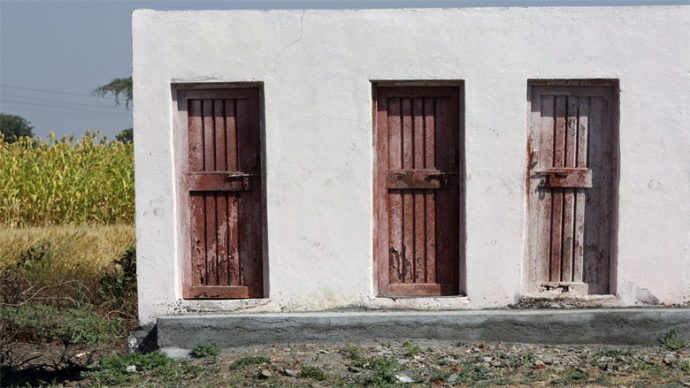Washington D.C., 30 March 2016 (World Bank): A new 1.5 billion dollar (ca. 10 milliarder DKR) World Bank program will support the Government of India in implementing the rural component of the Swachh Bharat Mission (SBM), or the Clean India Mission.
The Mission is the country’s largest-ever drive to improve sanitation. It was launched by the Government of India in 2014 with the aim of ending open defecation (nødtørft i det fri) by 2 Oct, 2019, Mahatma Gandhi’s 150th birth anniversary.
The program also seeks to ensure that communities sustain their open defecation free status, and improve the management of liquid and solid wastes. World Bank support will help accelerate results in India’s states by giving them performance-based incentives.
Improving sanitation in the villages has proved to be one of India's greatest development challenges. Three out of five people in rural India suffer the indignity of defecating in the open. Girls and women have to venture out before dawn or after dark, leaving them vulnerable to harassment.
Rammer millioner af børn
One in every ten deaths in India is linked to poor sanitation. And nearly 44 million children under five remain stunted (hæmmet i vækst og udvikling), robbed of the chance to achieve their full potential. All told, the country loses the equivalent of 6 percent of GDP due to inadequate sanitation.
Past efforts to address this problem have had little success. Although toilets were built, without adequate motivation to use them, village people often continued to adhere to centuries-old practices, and abandoned the new toilets or put them to alternative uses.
Building on lessons learnt from past experience, the new Mission will use trained facilitators to motivate people to use toilets by addressing the cultural and behavioral patterns that have prevented them from doing so.
Once the desire to use toilets is established, villages will be placed in charge of drawing up their own plans to end open defecation. The facilitators will help villagers choose where to build the new toilets and masons will be trained to construct the kind of toilets that are best suited to the local terrain.
Delstaterne får et stort ansvar
While budgetary resources and technical assistance are being made available from the central government, states will have the flexibility to adopt the messages and methods that resonate most with the social and cultural sensibilities of their people.
Implementation on the ground will be monitored. A national sample-survey of rural sanitation will be conducted every year by independent third-party agencies.
Sanitation improvements will be measured in terms of the number of rural people who have stopped open defecation, whether villages have sustained their open defecation-free status, and the improvements they have made in solid and liquid waste management.














